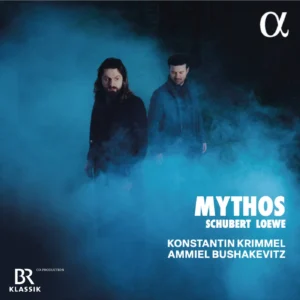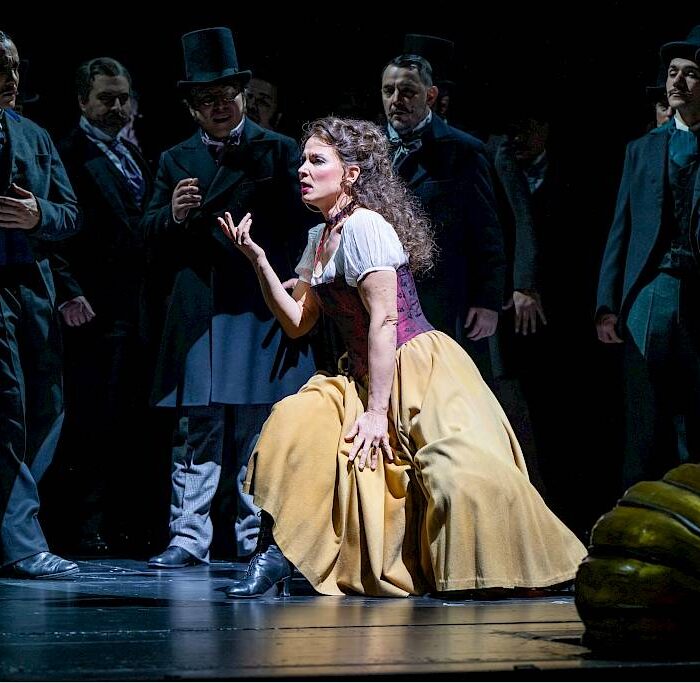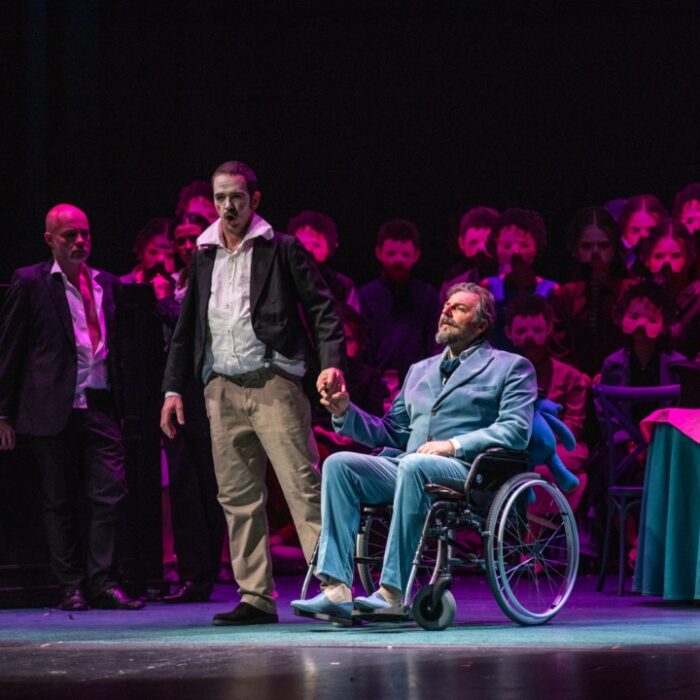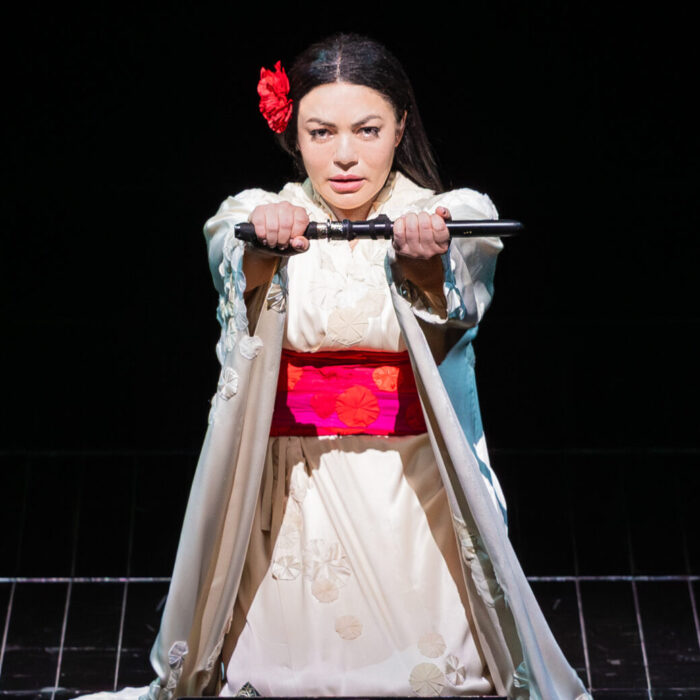
CD Review: Konstantin Krimmel’s ‘Mythos’
By Bob Dieschburg
If it were not for Franz Schubert, the incommensurably prolific Carl Loewe would be the undisputed champion of 19th century art songs. Older, by just two months, Loewe epitomizes Biedermeier aesthetics with their charming naivety and quasi-lackadaisical trust in God. They materialize in apolitical narratives, and the cultivation of the private sphere – from tales of old to homely scenes.
In pairing the composers, Konstantin Krimmel gives the best of both worlds, the rhapsodic elan of Carl Loewe and Schubert’s melodic perspicacity. “Mythos,” as the new album is titled, is a complementary survey of their art, narrowed down to its most elegiac. It is steeped in Krimmel’s fascination with the mythical, and Romanticism’s very own interpretation of death, from Schubert’s “Erlkönig” to Carl Loewe’s “Süßes Begräbnis” and the ever so melancholy “Die Uhr”.
Near-Tenoral Luster
From the outset, Krimmel presents himself as a very nuanced interpreter, keen on delivering philological meaning through his voice’s natural ability to shade and lighten up. He has an innate capacity to move into near-tenoral clarity, for instance in Schubert’s “Der König in Thule,” or the equally sensitive “Süßes Begräbnis,” based on a text by Friedrich Rückert.
Yet Krimmel’s appeal does not just lie with his relatively slender vocal physiognomy; it mostly relates to his incomparably sympathetic interpretations which are far removed from the intellectualist approach of some of his most illustrious predecessors. Notably, he is able to infuse every line with some nuance of deeply felt emotion.
In “Meerfahrt,” Krimmel conjures the funereal image of the sunken city, with mournful empathy and by pairing the fluidity of his lines with utmost delicacy of tone. The ascending phrase of “deinem Sarg aus Krystall” is perhaps more powerful than on any renditions by his peers, including Trekel’s recording for CPO’s complete edition set of Loewe’s ballads and Lieder.
Kindred Spirits
The baritone is accompanied on the piano by Ammiel Bushakevitz whose occasionally willful tempi situate “Mythos” at opposite ends of Roger Vignoles and Malcolm Martineau, viscerally engaged in their respective recordings of both Schubert and Loewe. Martineau’s “Der König in Thule” only takes two minutes and 44 seconds; Bushakevitz clocks in at just under four minutes. It puts Krimmel under the magnifying lens – perhaps unjustly so – as one has to concede when pressed that Florian Boesch (with Martineau) executes the score’s intermittently short trills more surgically, if not with higher expressivity.
Similarly, Vignoles has the interpretive edge in “Die Uhr”. He is faster than Bushakevitz by some 50 seconds and subtly builds on its constitutive metaphor – the beating of the heart – by varying the rhythms accordingly. Bushakevitz may be phrasing too uniformly, and it is a shortcoming at best that neither he nor Krimmel pause in-between the characteristically onomatopoeic “drohte zu stocken ihr Lauf” (the clock is slowing) and “so zog der Meister… sie wieder auf” (it is wound again).
Still, “Mythos” is a splendid recital whose minor flaws separate Krimmel and his pianist’s delightful performance from nothing but the ever so elusive state of perfection. For Schubert’s Lieder, there are many alternatives, different in style and with more emphasis perhaps on the intellectualist tradition of Schwarzkopf or Fischer-Dieskau.
Yet Loewe’s output remains something of a rarity, and having a supremely curated rendition of the shamefully neglected “Meerfahrt” makes the Alpha label’s production already worth a listen or two. Krimmel and Carl Loewe, one may find, are kindred spirits!


